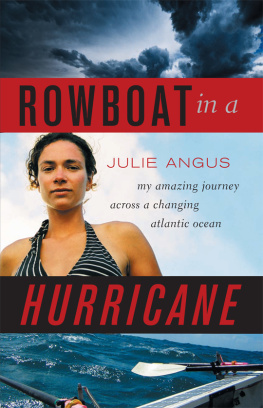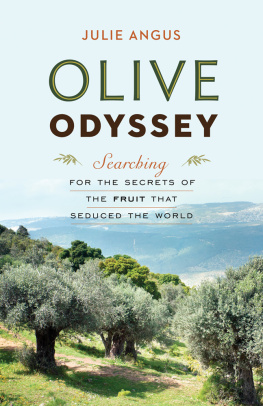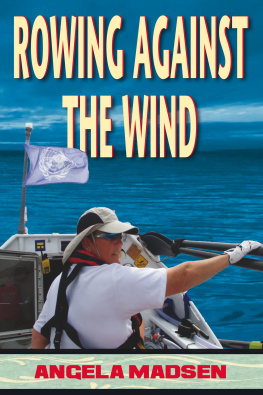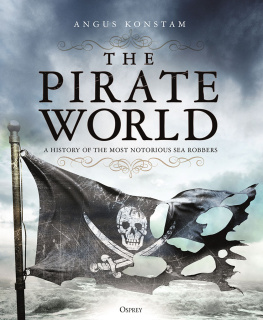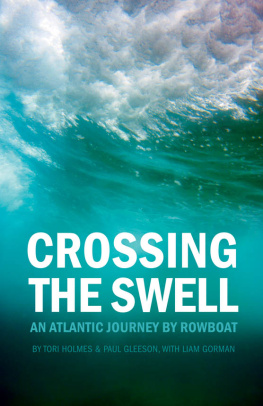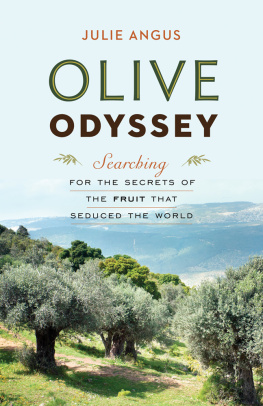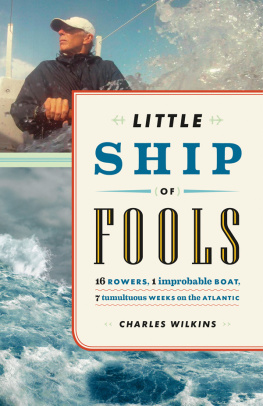
rowboat in a hurricane
JULIE ANGUS
ROWBOAT IN A HURRICANE
my amazing journey
across a changing
atlantic ocean
GREY S TONE BOOKS
Douglas & McIntyre Publishing Group
Vancouver/ Toronto/Berkeley
Copyright 2008 by Julie Angus
08 09 10 11 12 5 4 3 2 1
All rights reserved. No part of this book may be reproduced, stored in a retrieval system or transmitted, in any form or by any means, without the prior written consent of the publisher or a licence from The Canadian Copyright Licensing Agency (Access Copyright). For a copyright licence, visit www.accesscopyright.ca or call toll free to 1-800 -893-5777.
Greystone Books
A division of Douglas & McIntyre Ltd.
2323 Quebec Street, Suite 201
Vancouver, BC V5T 4S7
www.greystonebooks.com
Library and Archives Canada Cataloguing in Publication
Angus, Julie
Rowboat in a hurricane : my amazing journey across a changing
Atlantic Ocean / Julie Angus.
Includes bibliographical references and index.
ISBN-paperback 978-1-55365-337-0
ISBN-ebook 978-1-926812-25-0
1. Angus, JulieTravelAtlantic Ocean. 2. Atlantic OceanDescription and travel. 3. Boats and boatingAtlantic Ocean. 4. Marine ecologyAtlantic Ocean. 5. RowersCanadaBiography. I . Title.
G530.A52A52 2008 910.4' 5' 092 C2008-903327-2
Editing by Susan Folkins
Cover photographs courtesy of author
except image of clouds: Gerald French/Getty Images
Distributed in the U.S. by Publishers Group West
We gratefully acknowledge the financial support of the Canada Council for the Arts,
the British Columbia Arts Council, the Province of British Columbia through the Book
Publishing Tax Credit, and the Government of Canada through the Book Publishing
Industry Development Program (BPIDP) for our publishing activities.
TO COLIN,
my partner in life and in adventure
CONTENTS
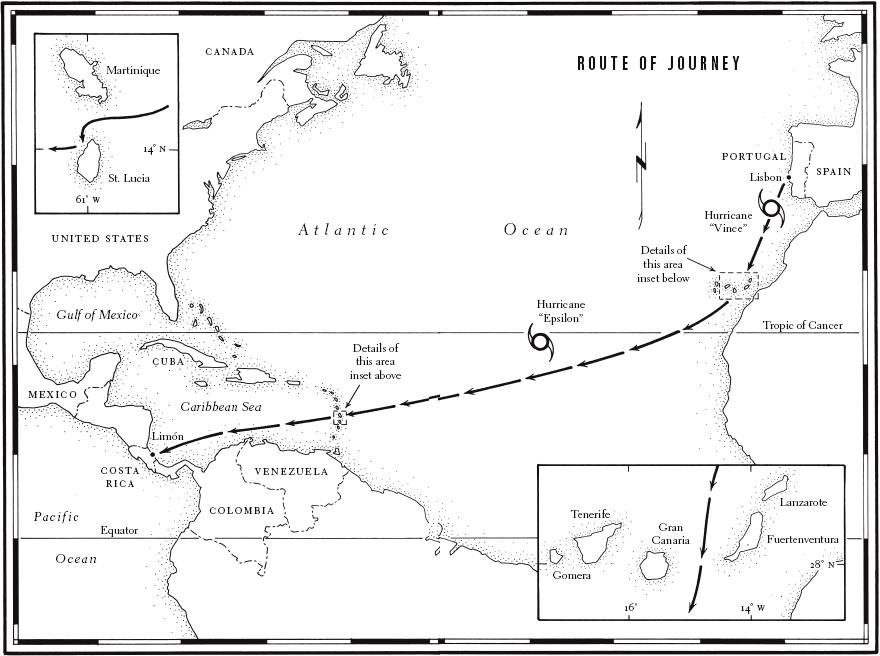
W HEN I WAS eleven, my parents gave me a pet. It wasnt the dog I always wanted, but a fisha guppy that swam between plastic fronds in its aquarium home. Glass separated us so that its watery world could exist in mine, and I used to imagine what it would be like if the situation were reversed and I existed in a fishs world.
Two decades later, in September 2005, my face was no longer pressed against aquarium glass. Instead, I watched an expansive ocean unfurl before me. I stood on a craggy cliff that was Europes second most western pointtwo hours west of Lisbon, Portugal, by bikewith Colin, my husband-to-be, and together we stared at an ocean we hoped to cross in a rowboat. For the last forty-nine days we had cycled west from Russias capital, Moscow, and finally we had reached the end of the road. In two weeks we would trade the security of land for volatile waters and begin a ten-thousand-kilometre journey across the Atlantic Ocean to North America.
More than a yearning for adventure had led me to this moment. I was drawn by the opportunity to experience the ocean from the intimate vantage offered from the deck of a rowboat. I had completed my graduate degree in molecular biology and had gone on to a career in developing therapeutics, but my personal interests now leaned towards ecology. My bookshelf sagged under the weight of volumes by Carl Safina, David Suzuki, and Sylvia Earle; it was the magnitude of the environmental issues facing our oceans that captured much of my attention. The problems of climate change, acidification, overfishing, and pollution were well documented, yet little progress was being made to solve these issues. And in a way it was easy to understand why. When I kayaked in the Gulf Islands or hiked in the Coast Mountains, I admired the Pacific Ocean for its vastness and permanence, its obliviousness to its own fragility and to the changes occurring beneath its surface. Ignoring the unseen was easy, and the very vastness of the ocean made it difficult to accept that minuscule actions on our part might have a profound impact. Through this journey I hoped to shift my understanding of the ocean to get an intimate sense of the life and dynamism that comprises it instead of viewing it as a vast, impenetrable expanse. I wanted to watch turtles as they migrated across the ocean and pelagic sharks as they hunted for tuna, to see pods of dolphins swim by and whales surface for air. I wanted to experience this environment in technicolour detail. At the same time, I wondered if I would see all the environmental perils I had read about.
NOW, WITH FORMIDABLE waves growling and slurping metres away, I began to feel nervous. My mind teemed with all the things that could go wrongrunning out of food, succumbing to botulism, being attacked by sharks, encountering pirates, colliding with tankers, and contending with hurricanes and a plethora of medical emergencies. Then there was my relationship with Colin, my fianc; he seemed like the perfect guy (which is why I said yes when he proposed), but would I still feel the same way after five months of confinement in a space the size of a closet? Would he?
It had been much easier to embrace the concept of rowing across an ocean while ensconced in the comfort of my Vancouver home. There, I could convincingly explain why moving at a turtles pace across the sea provided unparallelled opportunities for observing the ocean, and how the months of toil would help toughen me up. But now those justifications were edged aside by a feeling of unease. As I stared across the sea, I wondered if I was making the right decision, and I struggled to distill the chain of events that had led me here.
I WISH I HAD a quick and easy answer like It came to me in a dream or A fortune teller told me, or even better, Im a world-class rower and I thought this would really challenge my athletic skills.
No, my answer is more convoluted, as many things in life are. I am not an adventurer or an athlete, and I am most certainly not a rowing protge (my first time in a rowboat was only a year earlier). In fact, for most of my life I considered the outdoors a place where unknown dangers lurked, a place best avoided. I grew up a base brat, an only child with an air-force father and homemaker mother. We moved every four years or less and lived mostly on military bases in rented PMQs (private military quarters). My parents shunned uncultivated wilderness, and they considered sports unnecessary distractions from academics that would expose their only child to wanton dangers. I grew up a timid girl whose biggest risk was a collision with a telephone pole as I walked home from school with a Stephen King novel pressed against my face.
It wasnt until the age of twenty-one, when I moved from Ontario to British Columbia for my graduate studies, that I became interested in the outdoors and athletic pursuits. I went on my first real outdoor adventure in 1998, during my inaugural spring in Victoria. A friend said, Were going to climb Warden Peak. Do you want to come with us?
The trip was much harder than I expected. For the first time in my life, I wore crampons, gripped an ice axe, rappelled down a sheer wall, and, while climbing that same cliff, nearly fell to what would have been a very messy landing had the belay rope not saved me. I was alternately terrified and mesmerized. For the first time I truly felt the allure of nature and the stillness of a place devoid of people. But most of the time I just thought, Please just let me get out of here alive. To my surprise when we emerged from the forest, the first words out of my mouth were I cant wait to do this again.
Next page
